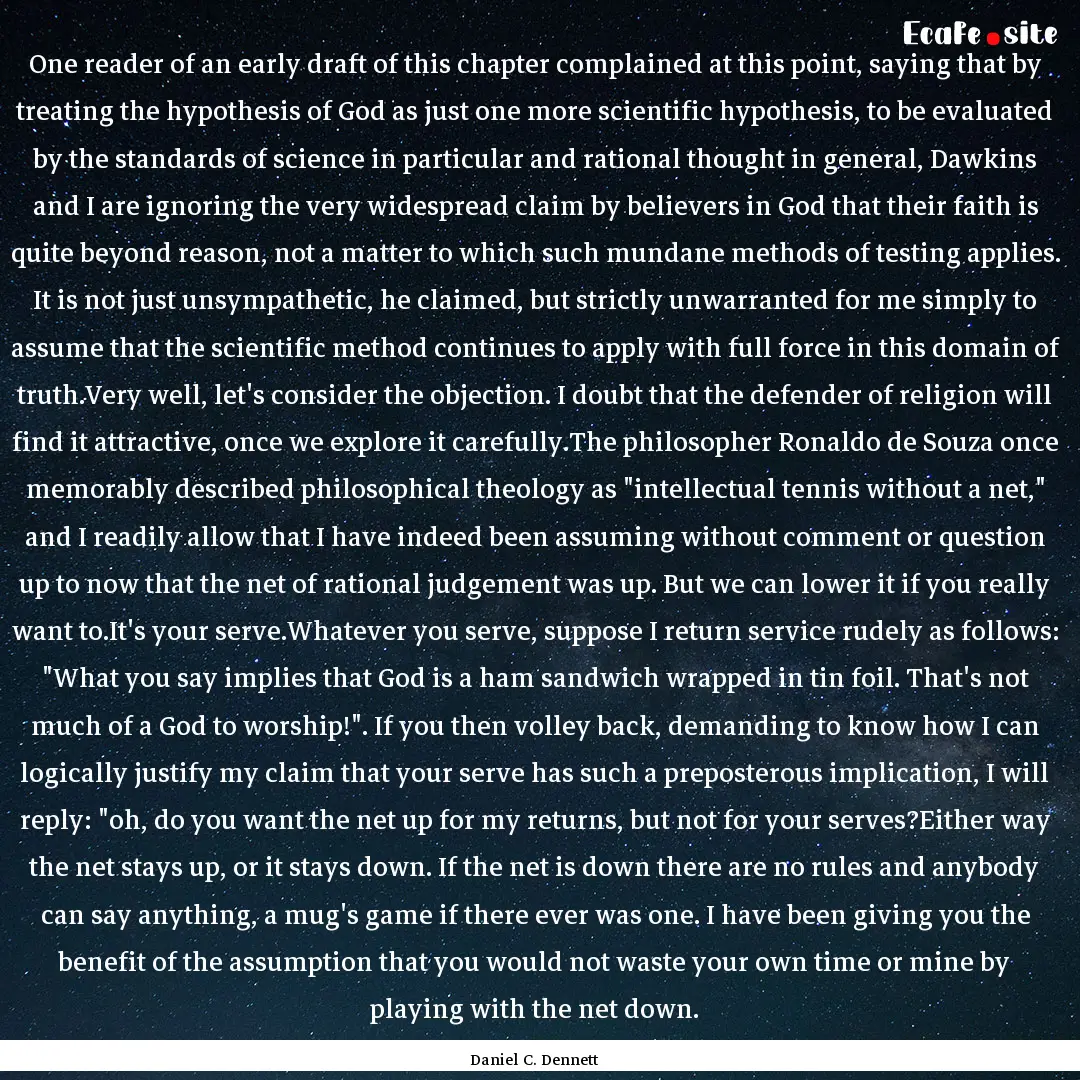
Report, if you have a problem with this page“ One reader of an early draft of this chapter complained at this point, saying that by treating the hypothesis of God as just one more scientific hypothesis, to be evaluated by the standards of science in particular and rational thought in general, Dawkins and I are ignoring the very widespread claim by believers in God that their faith is quite beyond reason, not a matter to which such mundane methods of testing applies. It is not just unsympathetic, he claimed, but strictly unwarranted for me simply to assume that the scientific method continues to apply with full force in this domain of truth.Very well, let's consider the objection. I doubt that the defender of religion will find it attractive, once we explore it carefully.The philosopher Ronaldo de Souza once memorably described philosophical theology as "intellectual tennis without a net," and I readily allow that I have indeed been assuming without comment or question up to now that the net of rational judgement was up. But we can lower it if you really want to.It's your serve.Whatever you serve, suppose I return service rudely as follows: "What you say implies that God is a ham sandwich wrapped in tin foil. That's not much of a God to worship!". If you then volley back, demanding to know how I can logically justify my claim that your serve has such a preposterous implication, I will reply: "oh, do you want the net up for my returns, but not for your serves?Either way the net stays up, or it stays down. If the net is down there are no rules and anybody can say anything, a mug's game if there ever was one. I have been giving you the benefit of the assumption that you would not waste your own time or mine by playing with the net down. ”

Daniel C. Dennett
From : Darwin's Dangerous Idea: Evolution and the Meanings of Life



